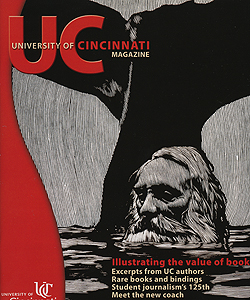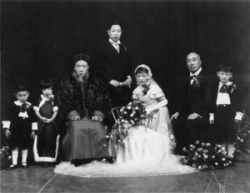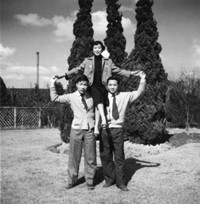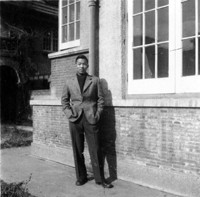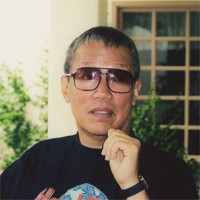Frank Leo hired a people smuggler to lead him to freedom. Today his LA firm is an industry leader in interior design.
by Mary Niehaus
For 350 years, Frank Leo's ancestors recorded portions of the family's history in graceful hand-lettered characters on large sheets of delicate rice paper -- all now destroyed.
In "Shanghai Remembrance," the University of Cincinnati grad (DAAP '62) renews the tradition, writing a candid and affectionate portrait of family love and survival.
